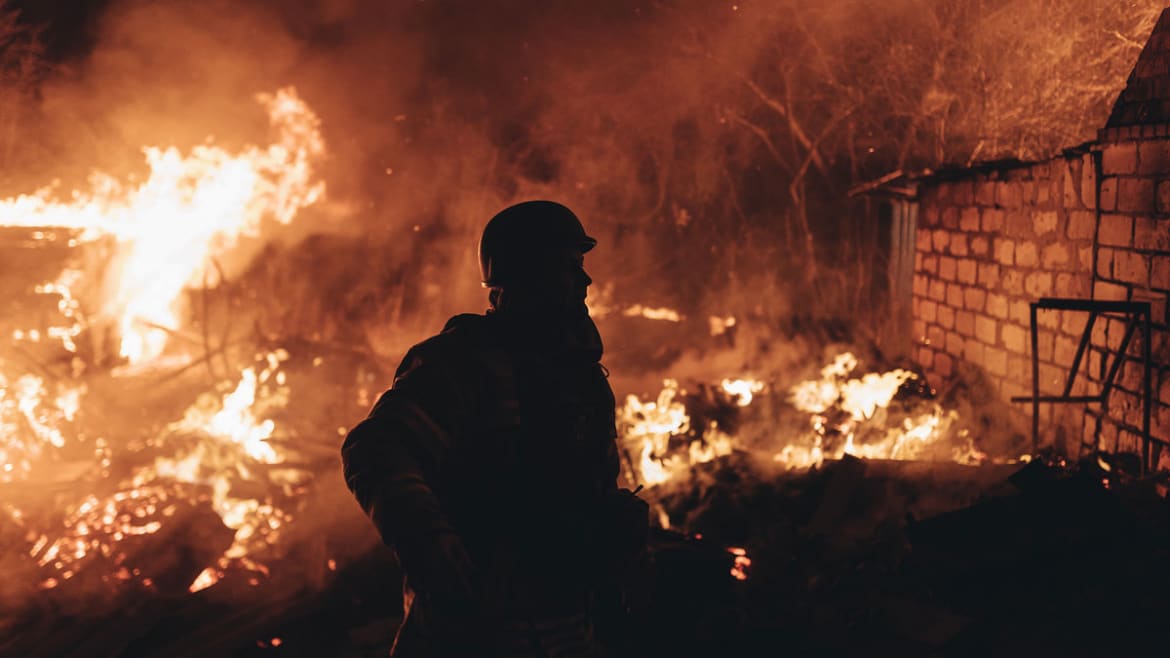Photo by Diego Herrera Carcedo/Anadolu Agency via Getty Images
BAKHMUT, Ukraine—In the smoke-filled basement of a nondescript building in the city center of Bakhmut, eastern Ukraine, the men of the SKALA intelligence battalion are getting ready for a risky reconnaissance mission. One of them is burning a last cigarette in the dimly-lit hallway. Clad in a bulletproof vest and helmet, a bearded soldier wraps yellow tape around both his arms—a sign used by Ukrainian soldiers to identify each other on the battlefield. “Be careful out there, there are snipers in this area,” a portly officer warns him, rising from his office chair facing a flatscreen TV that intermittently broadcasts the live-feed of a drone flying over carnage in the city. “I can’t die, my mom won’t let me,” quips the soldier with a weary smile, checking his gear one last time before heading out.
The previously-muffled sound of outgoing artillery becomes sharper and louder as the door to the street swings open. They take off.
“The situation is pretty tense, but we’re controlling it,” says 23-year-old Alexander, clutching his American-made M4 assault rifle. “We’re holding.” With his buzzcut and boyish looks, the young man wouldn’t look out of place in a trendy nightclub in downtown Kyiv. Yet, for weeks, Alexander and the grizzled soldiers of the SKALA battalion have been weathering the storm of daily Russian assaults and shelling on Bakhmut, hunkering down in the basement and doing daily sorties in the gray zone—the stretch of land between Ukrainian and Russian positions. Named after its founder and leader Iurii Skala, the SKALA battalion is tasked with conducting air and ground reconnaissance, as well as “cleaning operations”—a euphemism meaning assaulting enemy positions and taking out the Russian soldiers manning them.

